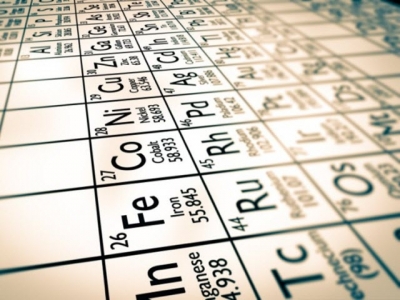Adding dietary fat to pig feed does not decrease the digestibility of any minerals

Supplementing pig diets with either saturated or unsaturated fat increases the digestibility of calcium, phosphorus, and sulfur in the diets, finds an industry backed study.
The team, led by Dr Hans Stein, professor of animal sciences at the University of Illinois, found the apparent total tract digestibility (ATTD) of calcium (Ca), phosphorus (P), and sulfur (S) was increased in pigs fed diets containing soybean oil, corn oil, palm oil, or tallow compared with pigs fed diets containing no added fat or choice white grease.
They saw that added fat did not affect the ATTD of potassium (K), manganese (Mn), sodium (Na), or zinc (Zn), although there was a tendency for magnesium (Mg) digestibility to be greater in pigs fed diets containing soybean oil or corn oil, compared with pigs fed diets containing tallow or choice white grease.
"The implication of this experiment is that producers can include added fat, whether saturated or unsaturated, in diets for pigs without creating a reduction in digestibility of calcium or other minerals. However, in the case of choice white grease, there was some indication that it had been oxidized, and oxidation may reduce mineral digestibility,” said Stein.
The research was funded by AB Vista Ingredients.
Stein says the findings of the study warrant further investigation.
Background
The animal science professor noted that previous studies in pigs and humans had observed the formation of indigestible calcium-fat complexes but they used fats that were more saturated than soybean oil.
Therefore, he and his team set out to determine the effect of the relative concentrations of saturated (SFA), monounsaturated (MUFA), and polyunsaturated fatty acids (PUFA) on ATTD of minerals in diets fed to pigs.
Five sources of supplemental fat were tested. Soybean oil and corn oil contained about 15% SFA, 26% MUFA, and 57% PUFA. Palm oil and beef tallow contained about 46% SFA, 42% MUFA, and 6% PUFA. The final fat source, choice white grease, contained 39% SFA, 43% MUFA, and 13% PUFA.
Method
The authors said a diet based on corn, potato protein isolate, and 7% sucrose was formulated. Five additional diets that were similar to that, with the exception that sucrose was replaced by 7% tallow, choice white grease, palm oil, corn oil, or soybean oil were also produced.
They formulated the diets so that they contained 0.70% Ca and 0.33% standardized total tract digestible P.
Growing barrows were allotted to a randomized complete block design with two blocks of 30 pigs, six dietary treatments, and 10 replicate pigs per treatment.
Experimental diets were provided for 12 days with the initial five days being the adaptation period, said the authors. Total feces were collected for a five-day collection period using the marker-to-marker approach, and the ATTD of minerals, ether extract, and acid hydrolyzed ether extract was calculated for all diets.
Results
Stein et al found the digestibility of DM was greater (P < 0.05) in the diet containing soybean oil compared with the diet containing choice white grease or the basal diet, with all other diets being intermediate.
They saw the ATTD of Ca, sulfur (S), and P was greater (P < 0.05) for pigs fed diets containing soybean oil, corn oil, palm oil, or tallow than for pigs fed the basal diet or the diet containing choice white grease.
The ATTD of Mg, Zn, Mn, Na, and K were not different among dietary treatments, added the authors.
They said the ATTD of ether extract was greater (P < 0.05) in diets containing palm oil, corn oil, or soybean oil compared with the diet containing choice white grease, and the ATTD of acid hydrolyzed ether extract in the diet containing soybean oil was also greater (P < 0.05) than in the diet containing choice white grease.
“In conclusion, supplementation of a basal diet with tallow, palm oil, corn oil, or soybean oil may increase the ATTD of some macrominerals, but that appears not to be the case if choice white grease is used. There was no evidence of negative effects of the fat sources used in this experiment on the ATTD of any minerals,” found the researchers.
Related news
 Wheat-DDGs drop feed efficiency in young swine diets, don’t alter intake
Wheat-DDGs drop feed efficiency in young swine diets, don’t alter intake Replacing soybean meal with DDGS maintains feed intake, but lowers average daily gain for young pigs, say researchers.
 Red pepper essential oil may aid nutrient digestion in piglets
Red pepper essential oil may aid nutrient digestion in piglets Animal scientists in Brazil examined the use of Brazilian red pepper essential oil in the diet of weanling pigs for growth and gut health.
 What canola by-products are beneficial for grower pigs?
What canola by-products are beneficial for grower pigs? The type of canola is used, and how the oil is extracted alter the nutritional offering of by-products used in swine feed, say researchers